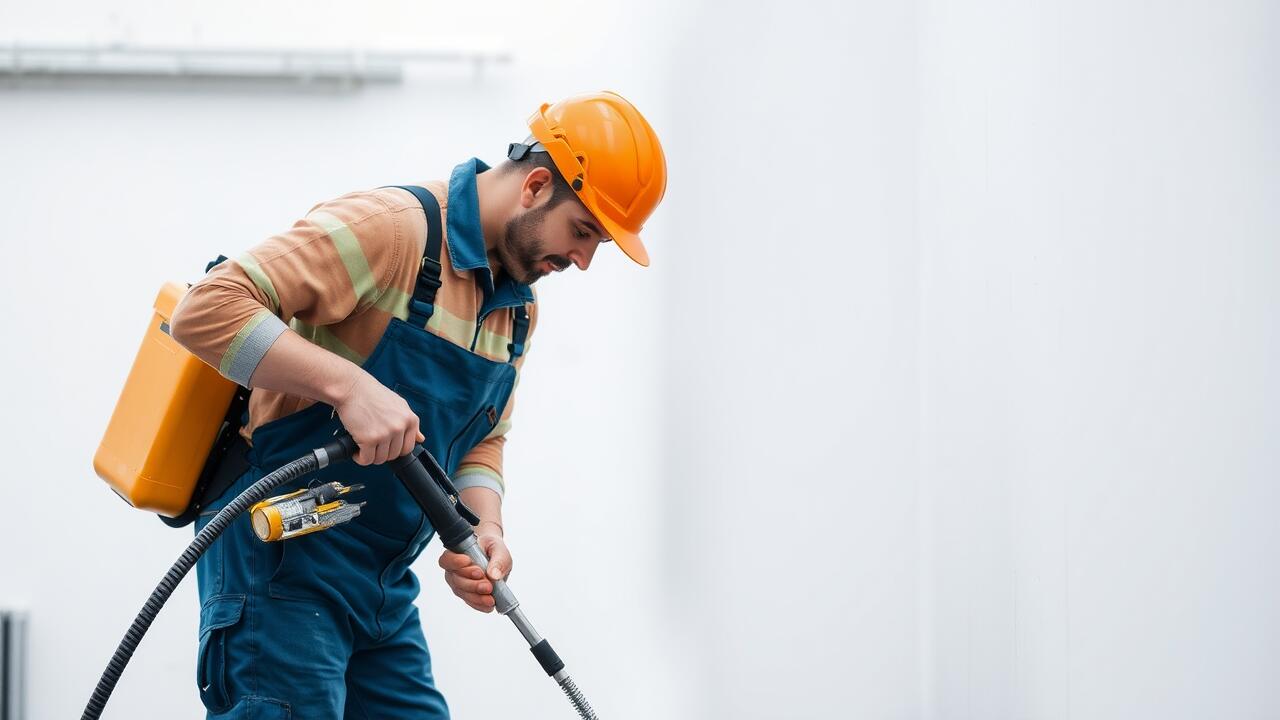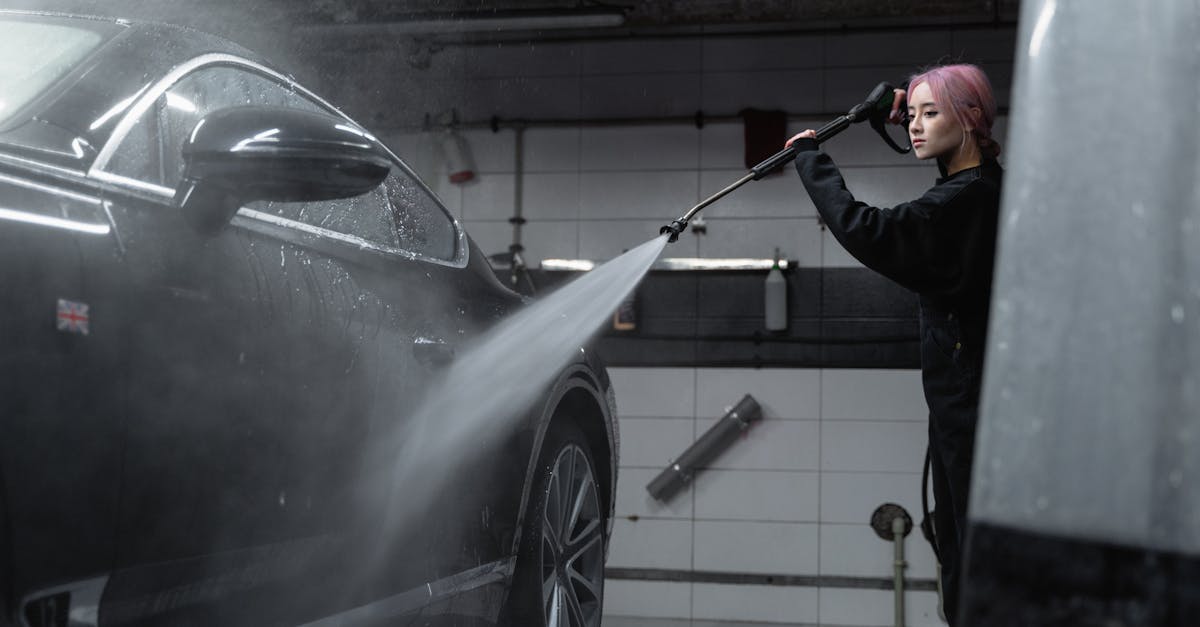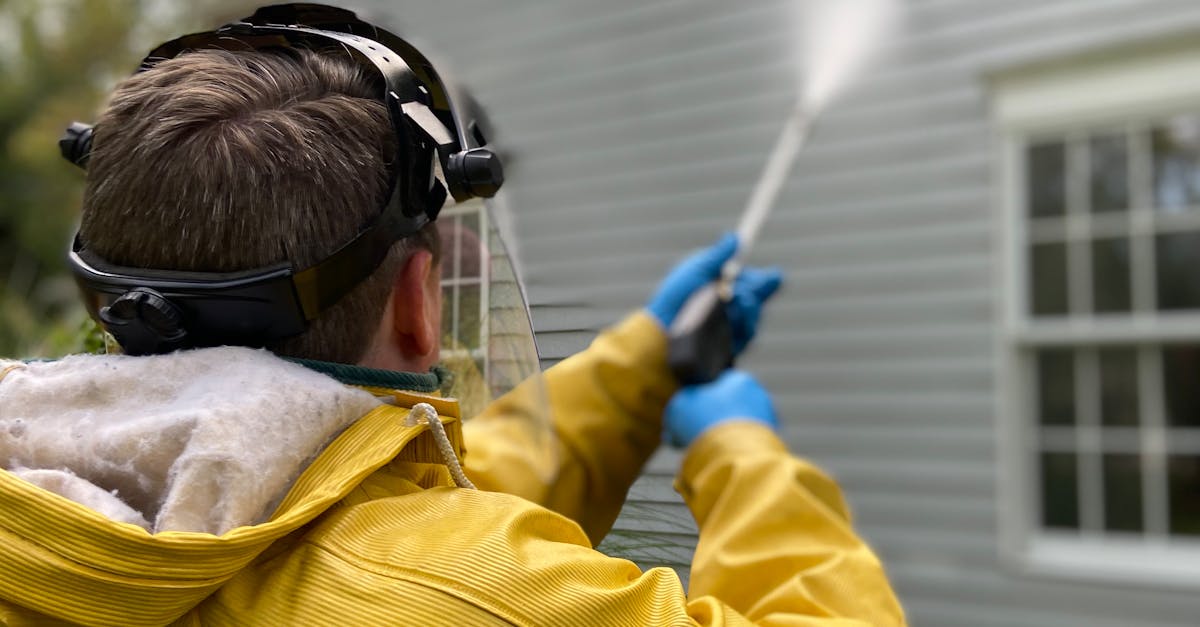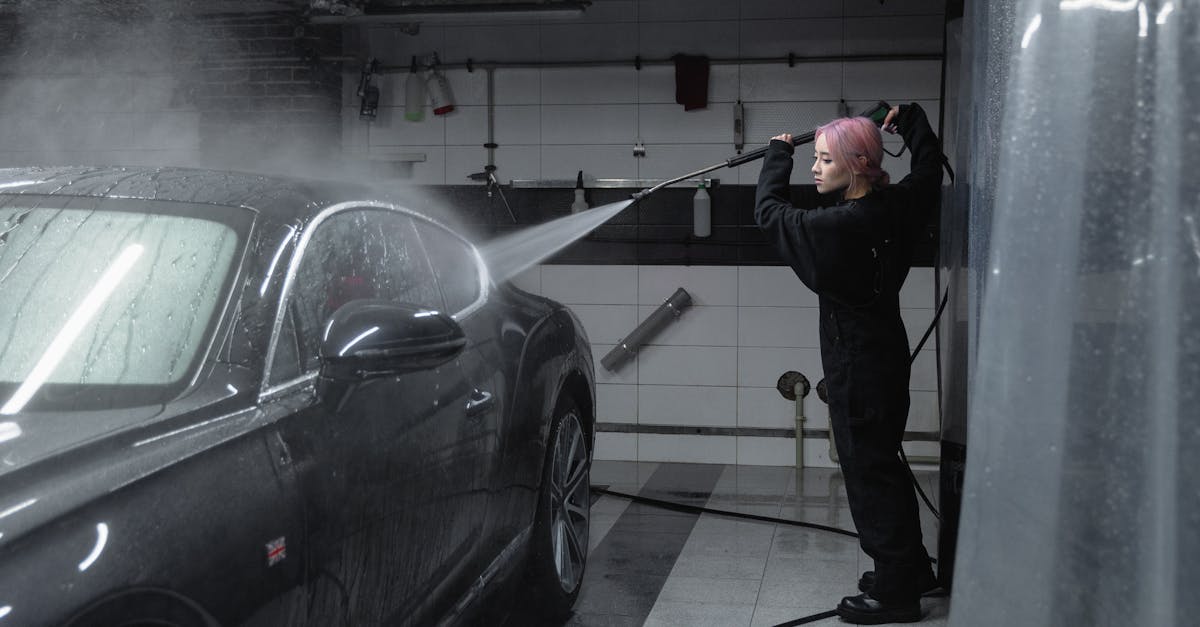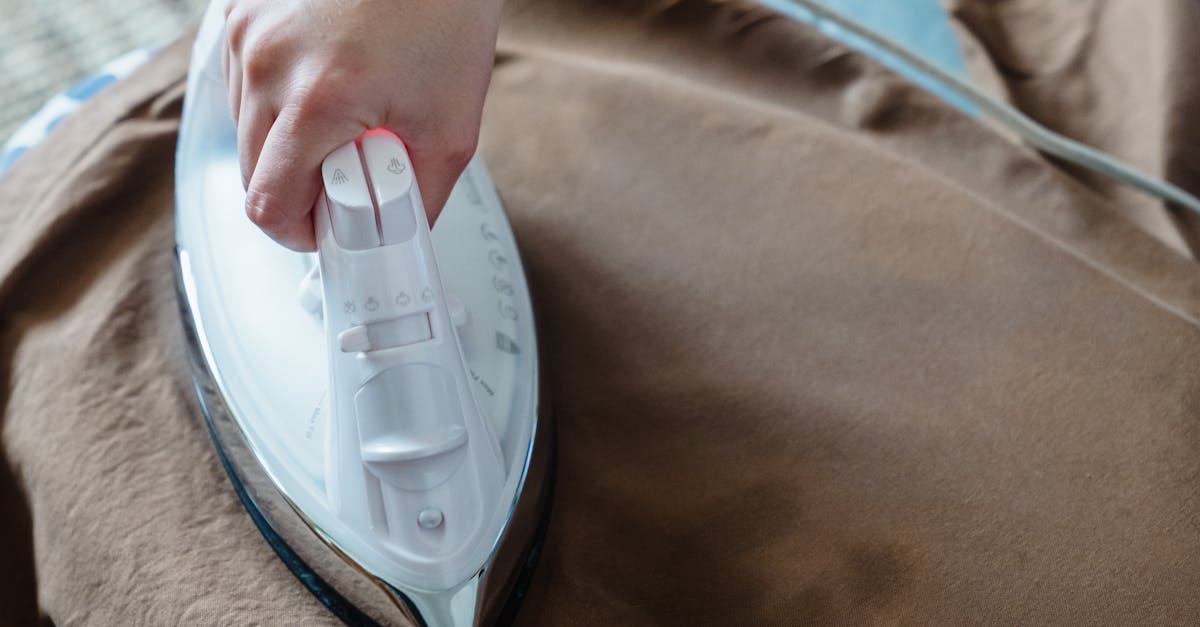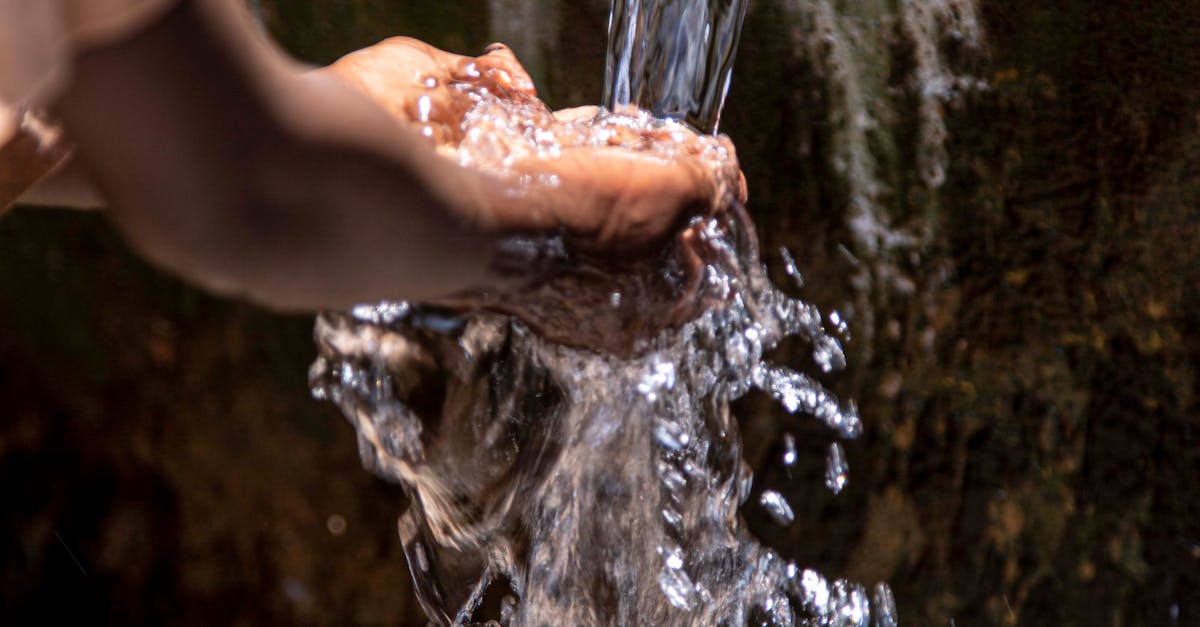
Soft Washing Explained
Soft washing is an alternative cleaning method that utilises low pressure combined with specialised biodegradable detergents. This technique effectively removes contaminants such as mould, mildew, and algae without the harsh impact associated with traditional pressure washing. By employing a gentler approach, soft washing not only cleans surfaces but also preserves their integrity, making it particularly suitable for delicate materials like wood and painted surfaces.
The process begins with the application of a cleaning solution that clings to the surface for a designated period. This allows the active ingredients time to break down grime and biological growth effectively. Following this, a low-pressure rinse removes the solution and the loosened debris, leaving a clean surface without risking damage often caused by high-pressure washing. Homeowners seeking gentle yet effective cleaning solutions can consider services like Pressure Cleaning in Derby, Derbyshire, to maintain the aesthetics and longevity of their property’s surfaces.
How Soft Washing Differs from Pressure Washing
Soft washing is a gentler cleaning method that utilises low pressure combined with specially formulated cleaning solutions. This approach is particularly effective for removing organic stains, such as algae, mould, and mildew. Unlike pressure washing, which relies heavily on high-pressure water jets to eliminate dirt and grime, soft washing focuses on the chemical reaction facilitated by the cleaner, allowing it to seep into porous surfaces. This reduces the risk of damage often associated with pressure washing, making it safer for fragile materials like roofs and painted surfaces.
Pressure washing, often available as a service such as Pressure Cleaning in Leicester, Leicestershire, exerts a considerable amount of force to dislodge debris. While this method is efficient for hard surfaces like concrete or brick, it can sometimes cause unintended damage, especially when employed on softer materials. The main distinction lies in the application of pressure and the types of surfaces suited for each method. Understanding these differences helps property owners make informed decisions about the best cleaning technique for their specific needs.
Importance of Surface Material
The nature of the surface being cleaned plays a pivotal role in determining the most suitable cleaning method. Different materials, whether they be wood, brick or concrete, require tailored approaches to avoid damage during the cleaning process. For instance, soft washing is often recommended for delicate surfaces, as it employs lower pressure and specialised cleaning solutions to eliminate dirt and grime effectively while preserving the integrity of the material. In contrast, hardier surfaces like concrete may withstand pressure washing without considerable risk.
Understanding the specific requirements of each surface is crucial for achieving optimal results. Using pressure cleaning in Loughborough, Leicestershire, without considering the underlying material could lead to adverse effects, such as etching or splintering. Therefore, evaluating the surface type before selecting a cleaning strategy can prevent costly repairs and ensure the longevity of the material. As such, meticulous assessment is vital in achieving the best possible outcome when restoring the appearance of various outdoor surfaces.
Selecting the Right Cleaning Method for Various Surfaces
Different surfaces require specific cleaning methods to achieve optimal results without causing damage. For example, pressure washing is effective for hard surfaces like concrete and brick but may be too aggressive for delicate materials such as wood or painted surfaces. On the other hand, soft washing employs lower pressure and special cleaning solutions, making it more suitable for roofs, stucco, and other sensitive materials. Understanding the composition and condition of the surface in question is crucial in selecting the correct method.
When considering professional services like Pressure Cleaning in Derby, Derbyshire, property owners should also take into account the long-term implications of their cleaning choice. Using the wrong method can lead to issues such as surface degradation or the need for costly repairs. It is advisable to consult with cleaning specialists who can assess the specific needs of each surface. Knowledgeable professionals will help ensure that the chosen method not only cleans effectively but also preserves the integrity of the material.
Cost-Effectiveness of Alternatives
When considering the cost-effectiveness of cleaning methods, pressure cleaning often appears attractive due to its immediate results. However, this approach can lead to higher long-term expenses when factoring in potential damage to surfaces or the need for frequent repairs. Employing softer methods like soft washing can mitigate these costs, providing a gentler alternative that preserves the integrity of various materials while still delivering a thorough clean. Pressure cleaning in Derby, Derbyshire, showcases how investment in appropriate techniques can yield both aesthetic and financial benefits over time.
Moreover, the initial pricing of pressure washing might be lower compared to better-suited alternatives, but its implications can be misleading. Surfaces like roofing or delicate landscaping may require intensive attention to prevent deterioration, which pressure washing alone cannot guarantee. Choosing an appropriate cleaning method, such as soft washing, ensures that property owners save money on maintenance and replacements. By carefully evaluating these alternatives, one can achieve an effective clean while also safeguarding a property’s condition in the long run.
Evaluating the Financial Aspects of Different Cleaning Methods
When considering the financial aspects of various cleaning methods, it’s essential to evaluate both the initial investment and the long-term costs associated with each approach. Pressure cleaning services can vary significantly in price depending on the provider, the size of the area to be cleaned, and the type of stains present. For residents seeking services like Pressure Cleaning in Lincoln, Lincolnshire, it’s vital to obtain quotes from multiple providers. This helps to ensure a competitive rate while also factoring in the quality of service.
In contrast, soft washing, although sometimes perceived as a more costly option upfront due to the specialised detergents and equipment required, can prove to be more economical over time. The ability to effectively clean surfaces without the risk of damage can save homeowners on potential repair costs. Evaluating the longevity of results can also contribute to overall savings, as deeper cleans may extend the time between maintenance cleanings. Assessing these factors helps to form a clearer picture of the financial implications of each cleaning method.
FAQS
What is soft washing?
Soft washing is a cleaning method that uses low-pressure water combined with specialised cleaning solutions to safely remove dirt, algae, and other contaminants from surfaces without causing damage.
How does soft washing differ from pressure washing?
Soft washing uses significantly lower water pressure compared to pressure washing, which can damage delicate surfaces. It relies more on the chemical solutions to break down grime rather than forceful water jets.
What types of surfaces are best suited for soft washing?
Soft washing is ideal for surfaces that can be damaged by high pressure, such as roofs, painted surfaces, and softwoods. It is effective for cleaning materials like shingles, stucco, and vinyl siding.
Are there any surfaces that should not be soft washed?
Yes, hard surfaces like concrete and brick may benefit from pressure washing rather than soft washing, as they can withstand the higher pressure without damage.
Is soft washing more cost-effective than pressure washing?
In many cases, soft washing can be more cost-effective as it requires less water and may have lower equipment costs. Additionally, it can prolong the lifespan of surfaces, reducing the need for frequent cleaning or repairs.
